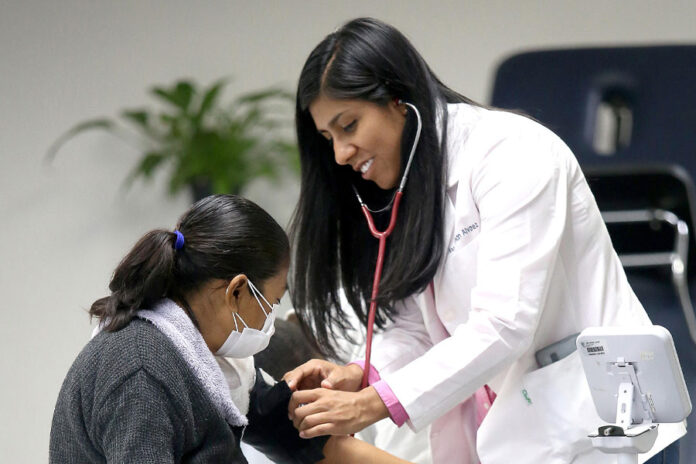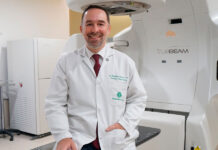These days we hear a lot about injustice on radio or TV, at City Hall, in our churches, at the grocery store, everywhere. These conversations are important to have, but oftentimes they leave out the topic of health, which is closely connected to and affected by injustice. Health is also something that matters to us as human beings. I spoke to a neighborhood resident, Nilda Diaz, and she told me that, “From a Biblical perspective, our body was created to enjoy and be taken care of… [Health] has do with everything in your life.”
In the field of public health, we talk about health constantly. Our conversations about health often refer to health equity. Health equity is defined differently depending on who you ask. For example, Nilda told me that for her, health equity means “that everyone can live their fullest life.” Echoing her, we at Esperanza understand health equity to be a condition where everyone has the opportunity to live the healthiest and most fulfilling lives they choose, no matter their circumstances.
Good health is a right, not a privilege. Unfortunately, health is not treated as a right in this country, but instead as something you have to purchase or earn. For example, for many of us, it’s difficult to be seen by a provider for urgent or chronic care when we need it. Not only is it a lengthy and complicated process to access medical care, but it can also be very expensive. For those without insurance or who are underinsured, healthcare is a luxury. This is just one example of how health inequity is experienced by Americans every day. Nilda has seen this kind of injustice with her own eyes, telling me that we “need to provide low cost to no cost services to low-income households.”
Achieving health equity is not easy to do. It involves removing or reducing “barriers” to health equity, or factors that promote health inequity. These include poverty, discrimination and racism, powerlessness, among other things. At the same time, we need to increase “bridges” to health equity. We should work to ensure proper access to health care, good jobs that pay well, quality education and housing and safe environments, to name a few. We also need to work to change policies and systems that cause generational injustices that increase the burden of poor health on communities.
Health equity is, above anything else, about people. “We, the People” need to share our stories and our experiences trying to stay healthy in the United States, like Nilda did with me. Our voices matter, especially when it comes to health, and we should raise our voices to advocate for what we need and want.







